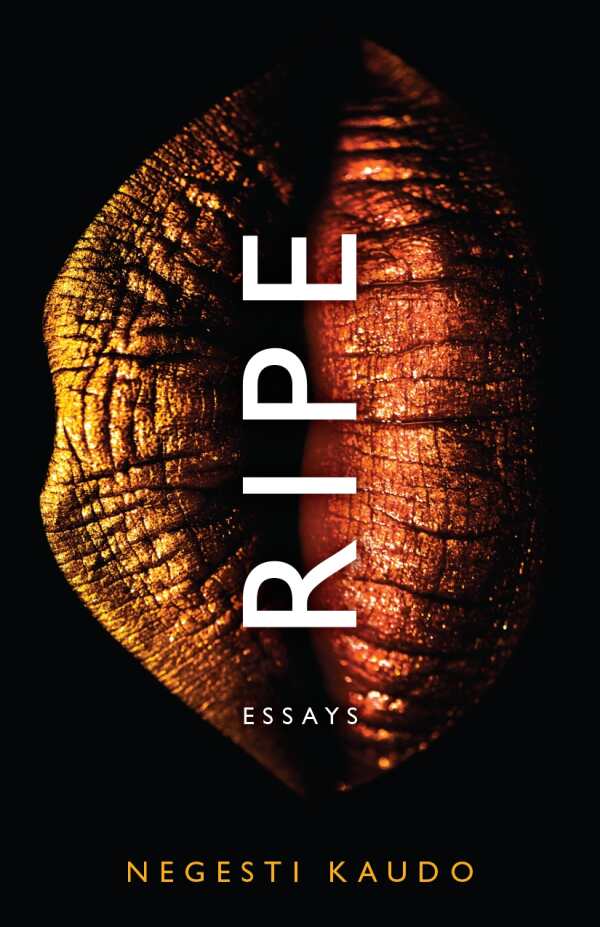Ripe
Negesti Kaudo probes her most formative experiences in her demanding essay collection Ripe.
This is an intentional collection exploring Kaudo’s discovery of herself, and her Blackness, in relation to personal and collective experiences, like dealing with grief, racism, and entering adulthood. Its first section, “Rind,” focuses on outside perceptions based on gender, race, and physical attributes that are often stereotyped, especially for Black bodies. Its second section, “Flesh,” focuses on discovering and accepting one’s own physical and personal attributes. Its third section, “Seed,” explores the inner life, nurturing the fullness of confidence borne out of deep soul-searching.
Kaudo’s language and tone are also intentional: at times, they are impersonal, dissociated from the truths of her experiences, as in “Unbothered: A Microaggression.” At other times, as in the “The One Where My Femme” essays, the language is almost too personal, sensual, and grounded in the body.
“Ripe” comes to its thesis in a roundabout way: the word denotes the readiness of plants for harvesting, but can also refer to one’s readiness for adulthood. Both definitions carry a sexual connotation, yet the essay does not focus on that. Instead, it focuses on the markers of adulthood, and on when, and how, those markers are achieved as an individual compared to when, and how, society and popular culture determine those markers should be achieved. In making this comparison, the essay confronts the dominant social narratives that exist for white, upper-middle-class people.
The collection’s first line is a challenge: “Dear reader, this text may be uncomfortable, inaccessible—consider your presence an intrusion.” This line lingers as a reminder that these essays are not for everyone, but Black women and femmes will find pieces of themselves herein.
Ripe is an essay collection that’s rooted in Blackness; it explores the sharp line between person/hood and object/ification.
Reviewed by
Dontaná McPherson-Joseph
Disclosure: This article is not an endorsement, but a review. The publisher of this book provided free copies of the book to have their book reviewed by a professional reviewer. No fee was paid by the publisher for this review. Foreword Reviews only recommends books that we love. Foreword Magazine, Inc. is disclosing this in accordance with the Federal Trade Commission’s 16 CFR, Part 255.

